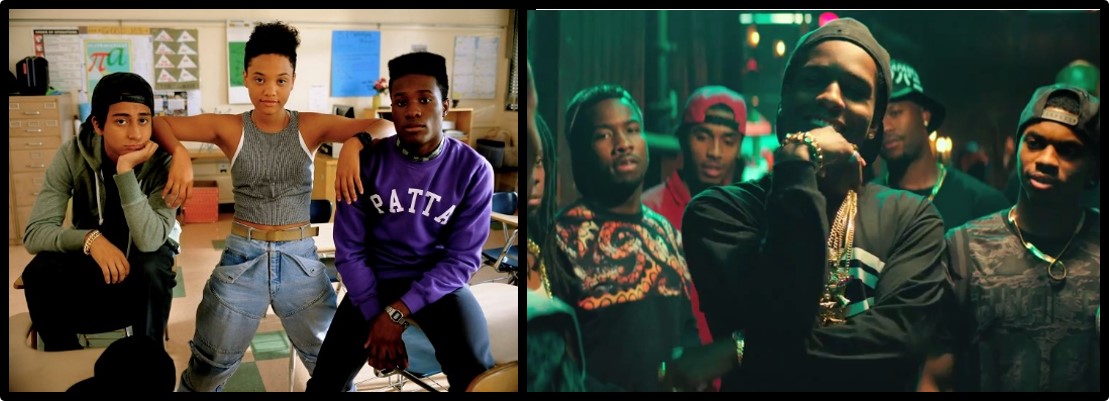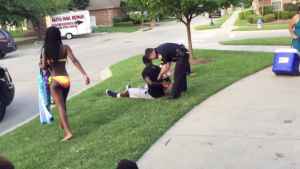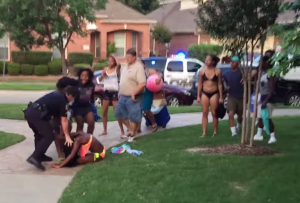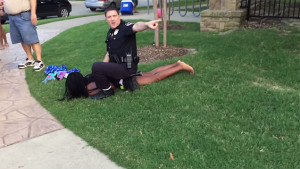This weekend the much-hyped movie Dope made its way to the big screen. From the powerful celebrity hands of Pharrell and Forest Whitaker, comes a coming of age story about a nerdy, 90s hip-hop head trying to make it through high school and get into the college of his dreams.
This movie and all it represents epitomizes the paradox of American culture.
The American Paradox?
Two weeks ago, timelines exploded with photos, video and articles of Black teens forcibly removed, some at gunpoint, from a public Texas pool. I refuse to speak about whether that level of force was justified. Mostly because I can’t get the image of a little girl, in a bathing no less, being slammed to ground, shouting for her mother with tears in her eyes. In this world, Black teens aren’t afforded the luxury of being kids. They’re adults, scary and menacing and the only way to curb this threat seems to be extreme force.
For full video coverage instead of pic, click Cops Crash Pool Party.
In Dope the story of these Black teens is so quintessentially American it lines up toe-to-toe with a John Hughes films. Written and directed by Rick Famuyiwa, Dope, featuring a mostly brown cast, stole the hearts of many and landed one of the top deals at Sundance this year. The black teens in this movie have hopes and dreams. Their experience and skills become pop phenomena with teens around the globe wanting to look like them, dress like them and listen to the same soundtrack.
But how can we commercialize the brown kids in Dope and criminalize the others?
I’ve watched the media bumble over how to describe this film that seems urban, yet a universally compelling story about making it through high school. Is it urban (READ: black, black, blackedy, black, ghetto) flick? Is it one of the coming-of-age stories us Americans absolutely love? But how can it possibly be both?
How Can Dope Help?
Look, I’ve lightly breezed past a minefield of issues – African-American portrayals in the media, mainstream appropriation (or downright stealing) of black culture, the racism that colors our justice system. Pick one! I’m most interested in understanding how the media landscape is shifting or has the ability to shift the stereotypes in the right direction. Give depth, honesty and universality to the experiences of African Americans one movie, one television show, one advertising dollar or one sales conversion at a time.
Unfortunately, the success of Dope cannot solve all of our problems nor should it try. I am hoping, however, the widespread popularity and success of a film like this can cure some small slice of ignorance our teens battle daily. Currently, Dope is tracking to deliver $6.5M this weekend, based on Friday June 19 and Saturday June 20 numbers, behind 4 other films including Jurassic Park ($106M) and San Andreas ($7.3M). This film is slow out the gate and I can only hope that in true Millennial and Generation Z fashion, the digital, social and press buzz grows viewership and the much-need dollars to make it a success.





